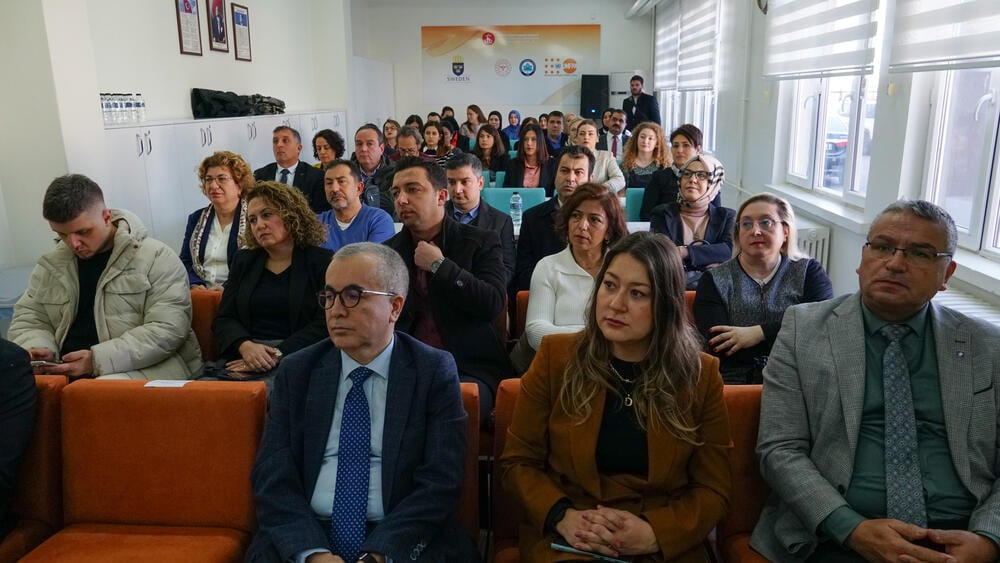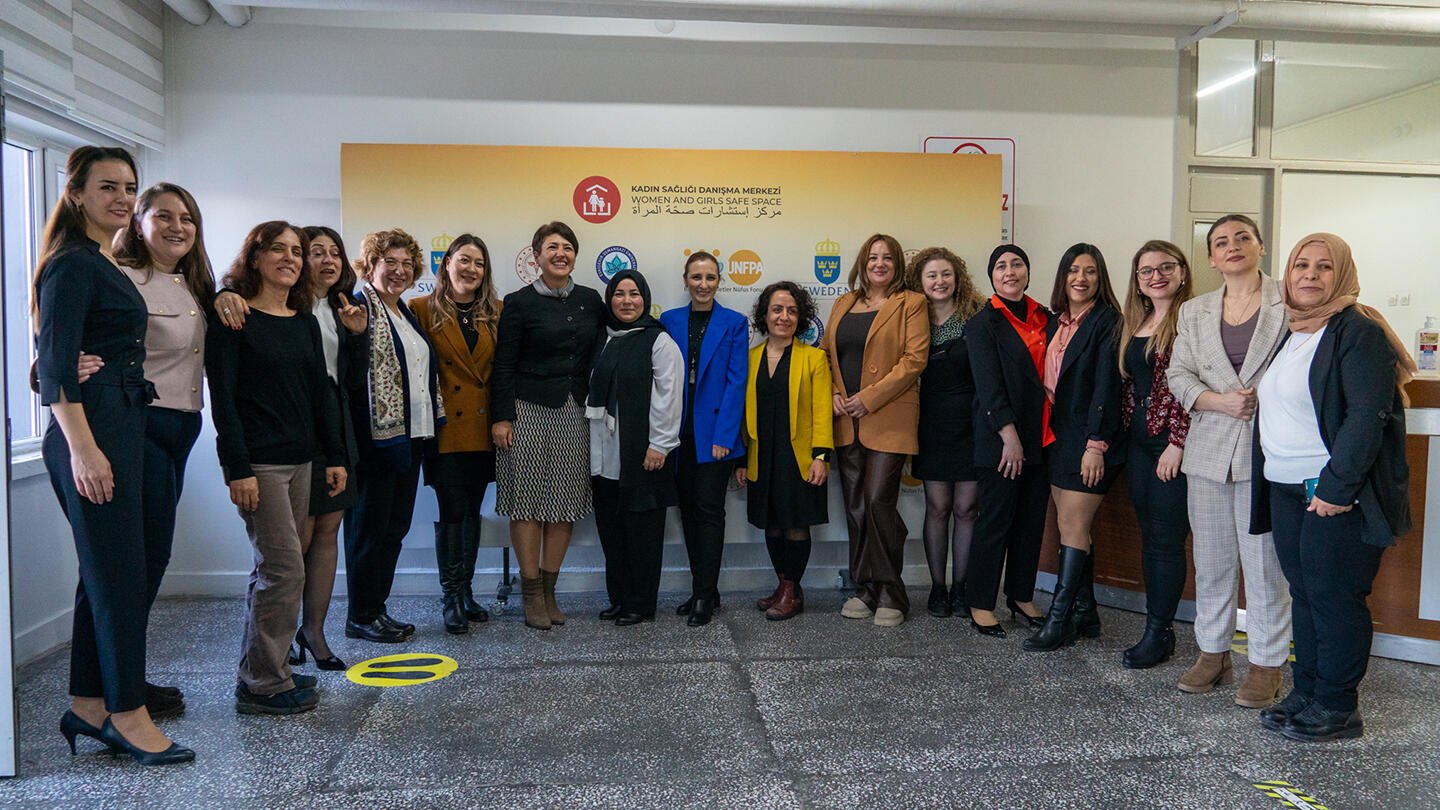The closing event of the Eskişehir Women and Girls Safe Space, which started its operations in 2017 in partnership with the United Nations Population Fund (UNFPA) and Eskişehir Osmangazi University, and financially supported by Sweden since 2019, was held on December 24, 2024.
Eskişehir, Türkiye - Access to women’s health and protection services is key for women and girls to be able to build a life where they feel safe and healthy. However, many women and girls today face limitations in accessing these services and information due to social norms and economic issues. The “Women and Girls Safe Space”, which started its operations in 2017 in partnership with the United Nations Population Fund, UNFPA Türkiye, and Osmangazi University in Eskişehir, and financially supported by Sweden since 2019, provided services to approximately 18 thousand people.
The closing event, which was held on December 24, 2024 at the Osmangazi University Women and Girls Safe Space and brought together public institutions, United Nations representatives, academia and civil society, addressed the results of the project and current needs. Osmangazi University Vice Rector Prof. Dr. Kürşat Bora Çarman, Eskişehir Provincial Health Director Assoc. Prof. Dr. Yaşar Bildirici, Provincial Director of Migration Management Mustafa Turan, as well as United Nations Population Fund representatives Dr. Selen Örs Reyhanioğlu and Nazlı Moral Uydu also attended the event.
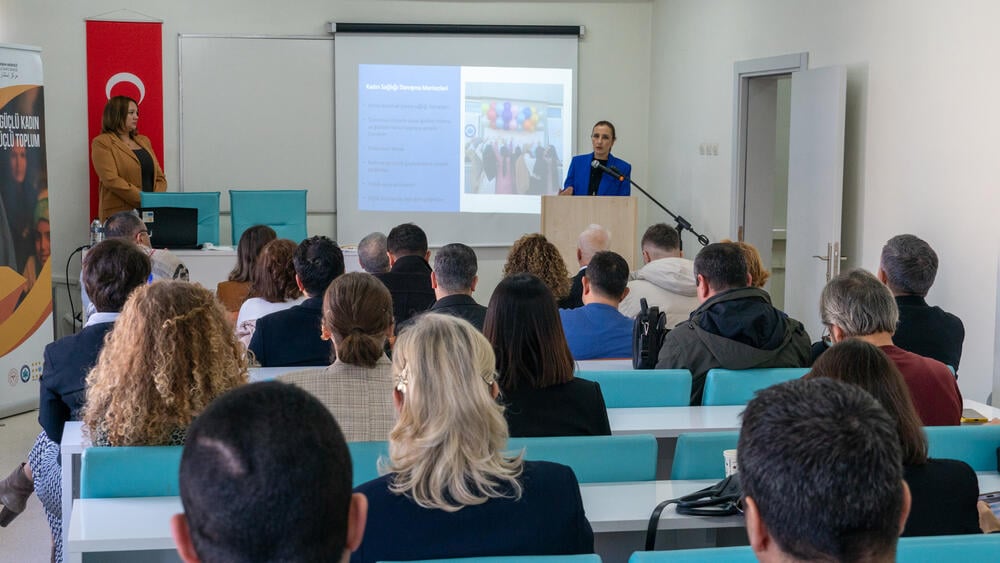
Speaking at the event about UNFPA’s efforts in supporting the most vulnerable women, girls and youth in Türkiye, UNFPA Humanitarian Programme Coordinator Dr. Selen Örs Reyhanioğlu said, “Türkiye has faced two major humanitarian crises, namely the large influx due to the civil war in Syria and the February 6, 2023 earthquakes. We observe that women and girls need support in accessing health and protection services during and after such crises. We have established and run 37 Women and Girls Safe Spaces with our partners in 17 provinces since 2015 particularly to support refugee women and girls. As UNFPA, we will continue to work in line with our ‘Leave No One Behind’ principle.”
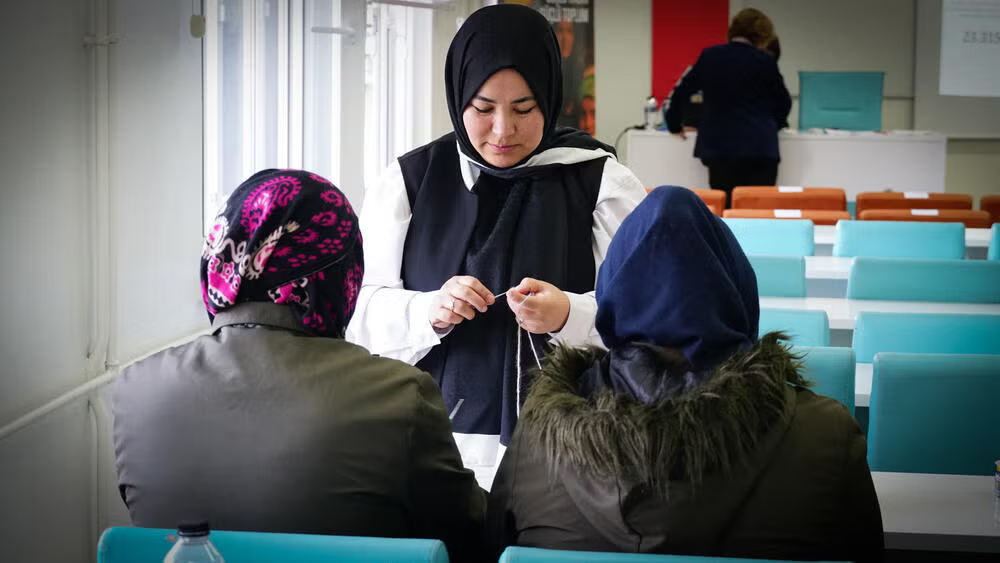
Within the scope of the Women and Girls Safe Space, which UNFPA has been operating in Eskişehir for approximately 8 years, both Turkish citizens and refugee women and girls from different nationalities were supported. They received health, protection and education services free of charge; accessed women's and reproductive health services and maternity and dignity kits at the center; and received support in the fields of prevention and protection against violence against women, including child and early marriages. The center also organized Turkish conversation clubs that aimed to strengthen social cohesion, skills building courses in areas including hairdressing, knitting and soilless agriculture that aimed to build economic resilience, and sports activities such as archery that aimed to socialize women.
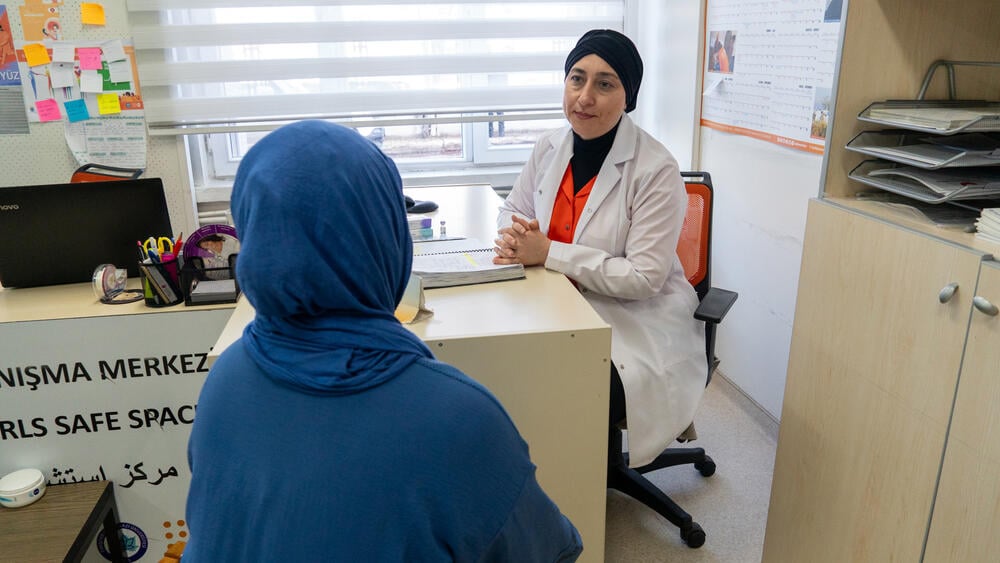
The center, which provides services with the support of a total of 10 female employees and volunteers, includes a midwife and a nurse to provide women's and maternal health services, a social worker to provide protection services, a psychologist for psychosocial support, translators who provide Arabic and Persian translation support to overcome the language barrier in counseling with refugee women, and health mediators who go door to door to raise awareness on health and women's empowerment.
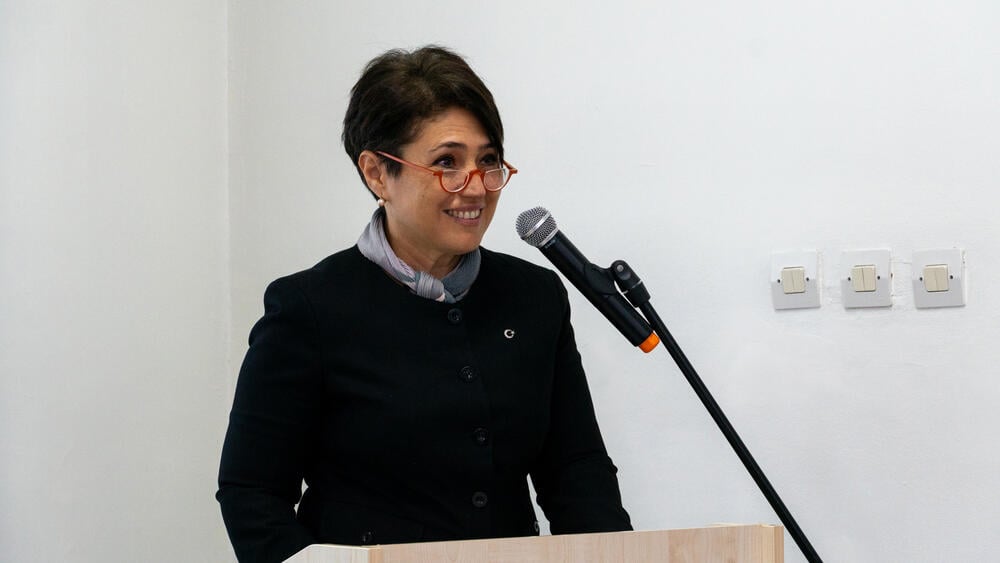
Describing the work carried out by Eskişehir Women and Girls Safe Space for almost 8 years, Project Manager and Coordinator Assoc. Prof. Dr. Figen Çalışkan said: "Access to women's health information and services is essential for the freedom and empowerment of women and girls. As access to these is provided, women can make their choices about their own bodies and manage their lives in a healthier way. As part of our project, we reached the disadvantaged women of our city both through the services at our center and by going door to door with our health mediators."
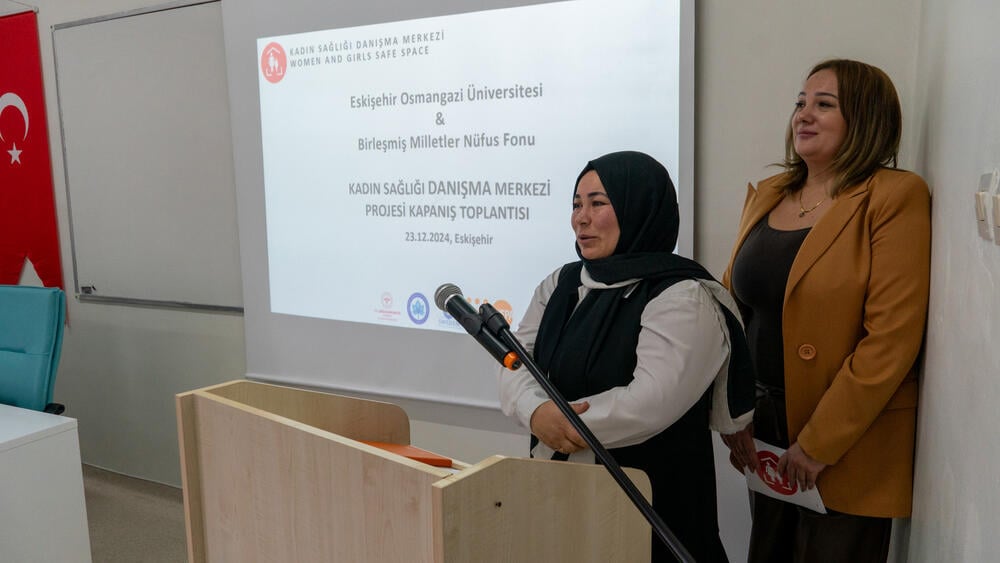
Rabia Özbek, who first came to the center to get support and then started working as a health mediator at the center to support other women, said, “After I migrated from Iran to Türkiye, my uncle’s son prevented me from going to school and made me look after his children at home. Unfortunately, I got married at a young age to escape from that life. I came to the center to receive a dignity kit, and since I knew Persian, they wanted me to work here. Then I learned how to read and write and how to use a computer. I had been left behind for years, and during the time I worked at the center, I proudly supported women like myself who were left behind.”
Within the scope of the Women and Girls Safe Space, which is carried out in Eskişehir with the financial support of Sweden and in partnership with Eskişehir Osmangazi University, women’s and reproductive health, gender-based violence prevention and response services and psychosocial support were provided to the most vulnerable women and girls, especially refugees. UNFPA continues its activities in Türkiye with great determination to empower women and girls in the fields of humanitarian aid and development.
